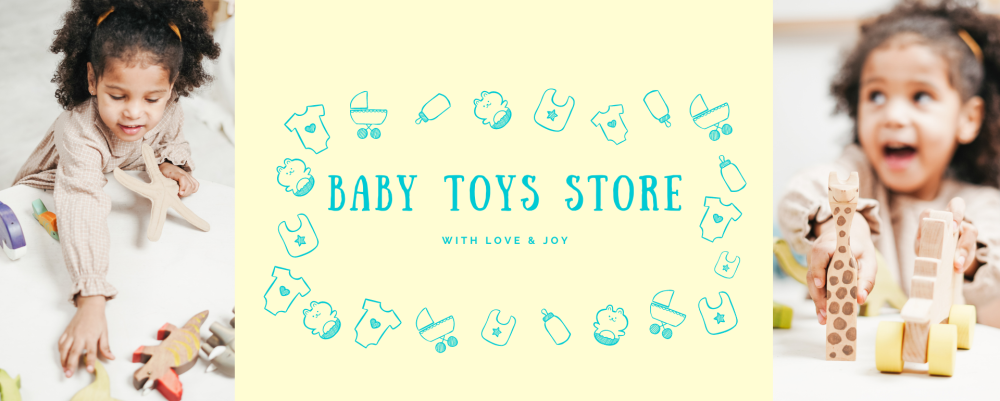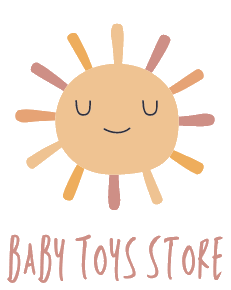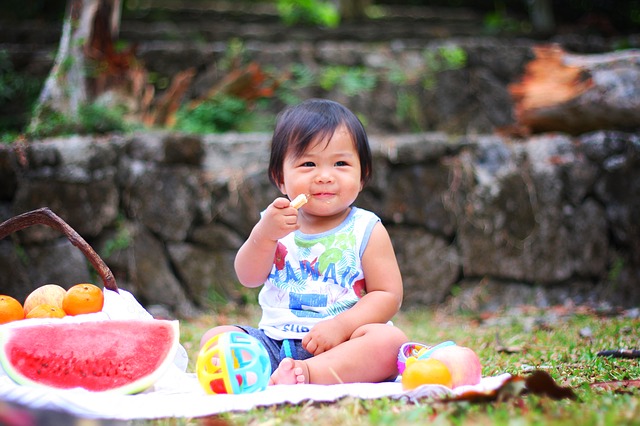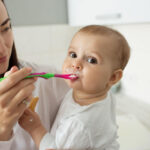When your baby is growing and becoming 1 year old they are discovering their worlds and for that, they need the full presence of their full body with the brain, for that the babies need a proper diet which can full fill their daily protein, vitamins, calcium and fat and other protein needs.
According to the studies when babies become 1 year old they need about 1000 calories, 700 mg of calcium, and approximately 7 mg iron each day. So for fulfilling them you can feed your baby,
Vegetables and fruits
Whole-grain foods
Protein foods.
The foods which you are feeding to your baby or offering are prepared with no added sugar and salt, and also have higher fat proteins like, salmon, nut butter and avocado, etc.
Here we are to suggest some healthy food for your 1-year-old child without spending a whole day in the kitchen to make the best for your baby.
1 banana, kiwis and other soft fruits:
Around the age of 1 year, your baby is discovering and seeing you feeding with your hands and they also wish to do the same to self-feed, so this is a great time to introduce them to finger-friendly food. So the softer and fresh fruits are the best option for self finger food, they will not only deliver the needed nutrition to the baby but also helps cement healthy eating habits.
Slice mango, strawberry, bananas into the pieces because the large pieces will lead them to the choking cause, and also same with the grapes never give them a full grape but slicing them into pieces for easy feeding.
If your child does not accept the new food then please don’t rush, as the study has shown that the child takes time to accept the new food and takes 6-15 times to accept the new food. Smooth and fresh fruits are better for meals and make a smoothie for a regular diet.
2 yoghurt and milk:
Milk and yoghurt are the greatest way to provide the protein which will help your child to bone building and also beneficial for the growth of their teeth. 244 ml is needed for a 1-year-old baby in a day and 8 grams of protein as well. While you may continue with the breastfeeding milk you can introduce yoghurt at mealtimes and yoghurt can be topped with diced fresh fruits.
At this age, you can feed honey to your child, but never feed honey to a child who is under 12 months, by doing this you are putting the life of your child at risk by infecting them with the infection called botulism.
- Which Baby Foods Can Help Boost Immunity?

- What Baby Food Is High In Calcium?

- Can Baby Food Cause Constipation?

- Can Baby Food Be Microwaved?

- Are Baby Food Allowed On Planes?

3 oatmeal:
Little ones are not master in chewing things which helps to chew things properly until they reach the age of 4 years. Till then, their food must be mashed and cut into small pieces for easy easting and digestion.
Oatmeal is a perfect option as your child makes this transition into chewing. Oatmeal is soft and pulpy which is easy to swallow and also boasts an impressive nutritional profile with a hearty heap of protein.
While premixed packages are tempting, the only option is to make them ready at home for children, and if you are strapped for time, consider making overnight oats by simply soaking them in the fridge overnight and feeding by mixing them purely in the morning.
4 whole-grain pancakes:
Pancakes are popular and favourite amongst the kids, these whole grains are a rich source of vitamins and minerals. The whole-grain pancakes are the natural source of what you serve to your children. They are also finger-friendly when they are cut into pieces.
After sizzling them on a skillet, top them with soft fresh fruits, or a drizzle of honey. You can also add a thin layer of nut buttercream to add some more protein.
5 eggs:
Eggs are a great power food for both kids and adults. It helps to improve eye health and also improves brain development, rich in protein and also a host of other nutritions. Scrambled them or hard-boiled and peeled, so your toddlers can easily self eat and also have no problem of choking when you cut them into bite-sized pieces.
Eggs are amongst the eight most common allergy foods, most children outgrow the allergy but watch out for symptoms such as nasal congestion, digestive issues, coughing and shortness of breath.
6 water:
As tyke weans your breast milk, they need to be hydrated and water is an optimal choice. Fill up their small cups and give them as much as they want. Your 1-year toddler needs 237 ml water per day, they will need more if they are ill, or in hot temperatures or active in playing. And they should be urinating every 6 hours when they are getting enough water.
7 chicken or turkey bites:
Soft bits of chicken and ground turkey is the best way to provide protein to your child which they need in their daily life routine. Feed them pureed chicken and small soft pieces of turkey and meat. Poach the protein first, then add milk or yoghurt in the meat to make them soft and blind then, as they can get softer for self eat. Avoid hard meat Pisces and stringy ones which will be difficult to chew for the babies, and also do not add some spicy spices which will end up in baby stomach pain.
8 steamed broccoli, peas and carrots:
Steaming vegetables such as broccoli, carrots and peas are an excellent way to introduce your child to this important sector of the food group. Broccoli, carrots and peas are enriched with fibre and vitamin C, and carrots are rich in lutein which will help to improve eyesight, and peas pack with muscle-building proteins. Other vegetables like sweet potatoes, parsnips and butternut squash are also given to babies with a steamed process.







